Flaxseed Health Benefits

Flaxseed is a rich source of healthy fat, antioxidants, and fiber. The seeds contain fiber, protein, lignans, and the essential fatty acid alpha-linolenic acid, also known as ALA or omega-3.
The nutrients in flaxseed may help lower the risk of diabetes, cancer, and heart disease. For this reason, it is sometimes thought of as a functional food, a food that can be consumed to achieve health purposes.
Flax is one of the oldest fiber crops in the world. It is known to have been cultivated in ancient Egypt and China. In Asian, it has played a role in Ayurvedic medicine for thousands of years.
Today, flaxseed is available as seeds, oil, powder, tablets, capsules and flour. It is consumed as a dietary supplement to prevent constipation, diabetes, cholesterol, cancer, and other conditions.
However, not all of these uses are supported by research.
Fast facts about flaxseed
- Flaxseed has long been thought to offer health benefits.
- It contains fiber, fat, protein, and various minerals and vitamins.
- These nutrients may offer protection against cancer, diabetes, and cardiovascular problems.
- Consuming ground flaxseeds enables the body to absorb the nutrients more effectively.
Possible health benefits
The therapeutic and beneficial properties of consuming flaxseed are not yet completely understood, and there is little evidence from high-quality research to confirm its benefits.
However, it contains nutrients which may help prevent a number of health problems.
Possible benefits include helping prevent cancer, reducing cholesterol and blood pressure, and protecting against radiation.
Cancer protection
Flaxseed contains omega-3 fatty acids. These are thought to disrupt the growth of cancer cells and to prevent their development. Consuming omega-3 oils may help protect against different types of cancer.
It also contains lignans. Lignans are thought to have antiangiogenic properties. This means they stop tumors from forming new blood vessels. The lignan content of flaxseed is thought to be over 800 times higher than that of other foods.
The lignans in flaxseed may help it protect against a variety of cancers, especially if consumed for life as a part of a healthful diet and lifestyle.
In a study of 161 men, published in 2008, consuming flaxseed appeared to stop prostate cancer tumors from growing, especially if the men also consumed a low-fat diet.
There have been several studies on breast cancer prevention and one large study found that flaxseed in the diet reduced the risk for breast cancer.
Lowering cholesterol and improving heart health
The fiber, phytosterols, and omega-3 content of flaxseed may help boost heart health. The lignans it contains may help protect against cardiovascular and other chronic diseases.
Phytosterols are molecules that are similar in structure to cholesterol, but they help prevent the absorption of cholesterol in the intestine. Eating foods that contain these nutrients may help reduce the levels of LDL, or “bad” cholesterol, in the body.
In 2010, researchers at the Iowa State University’s Nutrition and Wellness Research Center looked at the effect on cholesterol levels in men who consumed at least 3 tablespoons of flaxseed a day, including at least 150 milligrams (mg) of lignans. The men saw a decrease of nearly 10 percent in their cholesterol levels after 3 months. However, it did not have the same effect on women.
Prof. Suzanne Hendrich, who led the Iowa research, suggested that the different may be due to testosterone levels in men, which are lower in women.
In 2008, a study of 55 Native American women who had undergone menopause suggested that a daily intake of 30 g of flaxseed reduced their LDL cholesterol levels by up to 10 percent.
Fiber is also thought to help reduce cholesterol and the risk of cardiovascular disease. Flaxseed contains both soluble and insoluble fiber. According to the Mayo Clinic, soluble fiber dissolves to produce a gel-like substance that can help reduce cholesterol and glucose levels.
The American Heart Association (AHA) recommend eating more fiber as part of a heart-healthy diet. One benefit is that it makes you feel full, so you are less likely to overeat.
Omega-3 oils, usually found in oily fish, have been linked to reductions in cardiovascular risk. Some researchers have suggested that flaxseed could offer an alternative to marine sources of omega 3.
Does flaxseed prevent hot flashes?
In 2005, a study of 30 women suggested that consuming 40 g a day of flaxseed may help reduce the incidence or severity of hot flashes in women who are not using estrogen therapy during menopause.
A study of 188 women, published in the journal Menopause, found that a daily intake 40 g of flaxseed, representing 400 mcg of lignans, improved the symptoms of hot flashes by around half.
However, women taking a placebo also experienced a reduction, and it was not clear that effects were due to the flaxseed. The crushed flaxseed was sprinkled onto cereal, yogurt, or mixed into a drink.
There were hopes that flaxseed could become an alternative or complementary therapy for hot flashes, but the researchers concluded that the study “was not able to provide support for the use of flaxseed in reducing hot flashes more than a placebo.
Improving blood sugar
The lignans and other phytoestrogens are thought to help reduce the risk of chronic diseases, such as diabetes, because of an anti-inflammatory effect.
In a small study published in 2013, scientists gave 25 people 0 g, 13 g or 26 g of flaxseed every day for 12 weeks. The participants had prediabetes, and they were either men with obesity or overweight or women who had undergone menopause.
Those who took 13 g of flaxseed had lower glucose and insulin levels and improved insulin sensitivity.
A study on rats, published in 2016, suggested that compounds found in flaxseed may help reduce the incidence of type 1 diabetes and delay the onset of type 2 diabetes in humans, but more studies are needed.
In 2016, researchers published results of a study in which 99 people with prediabetes were given 40 g, 20 g, or no flaxseed and no placebo each day for 12 weeks. The results indicated that consuming flaxseed powder every day may reduce blood pressure in people with prediabetes, but it does not improve levels of blood sugar and insulin resistance.
The benefits of flaxseed on the symptoms of diabetes remain unclear.
Constipation
Flaxseed is rich in both soluble fiber, which dissolves in water, and insoluble fiber, which does not dissolve in water.
Insoluble fiber remains in the intestinal tract. It absorbs water and adds bulk to the digestive tract. This helps keep movement through the gut regular.
However, according to the National Center for Complementary and Integrative Health (NCCIH), there is little evidence that flaxseed helps reduce constipation. Consuming it with too little water can make constipation worse and possibly lead to an intestinal blockage.
Too much flaxseed or flaxseed oil can cause diarrhea.
Other conditions
The NCCIH is currently funding studies into whether the nutrients in flaxseed can help with:
- ovarian cancer
- cardiovascular disease
- metabolic syndrome
- diabetes
- asthma
- inflammation
Flaxseed has long been used in Ayurvedic medicine for health promotion, prevention, and a range of conditions, many to do with skin health.
A small study published in 2010 suggests that consuming flaxseed oil may help reduce skin sensitivity and roughness and improve skin hydration.
Protecting against radiation
Studies have found that the lignans in flaxseed may help protect against radiation. Scientists gave dietary lignans in flaxseed to mice with lung problems caused by radiation.
The mice that consumed the compounds derived from flaxseed had less inflammation, injury, and fibrosis, and a better survival rate that those that did not.
The researchers suggested that in the future, lignans from flaxseed may be useful for treating lung problems associated with radiation due to accidental exposure or radiation therapy.
Nutritional profile
Flaxseed is an excellent source of fiber, lignans, and of linoleic and alpha-linolenic acid (ALA), two omega-3 fatty acids that are essential for human health.
According to the United States Department of Agriculture (USDA), a 2.5-gram, or 1-teaspoon, serving of flaxseed contains:
- 13 calories
- 0.72 g of carbohydrates, of which 0.04 g are sugars
- 0.46 g of protein
- 0.7 g of fiber
- 1.05 g of fat, of which 0.906 g are unsaturated
- 0 cholesterol
- 6 mg of calcium
- 0.14 mg of iron
- 10 mg of magnesium
- 16 mg of phosphorus
- 20 mg of potassium
- 1 mg of sodium
- 0.11 mg of zinc
- 2 micrograms (mcg) of folate
- 0.1 mcg of vitamin K
The USDA also note that flaxseed contains phytosterols. In every 100 g of flaxseed, there are 49.0 mg of phytosterols.
Lignans are also present in large amounts. Lignans are a type of phytoestrogen. Phytoestrogens are estrogen-like chemical compounds with antioxidant qualities. They can reduce levels of free radicals in the body.
Flaxseed is considered a good source of lignans, containing 0.3 g for every 100 grams (g) of flaxseed.
Lignans may help protect against cardiovascular disease and a range of chronic conditions, if consumed for life as part of a healthful diet and lifestyle. However, more research is needed to confirm the exact role they can play.
Omega-3 fatty acids are thought to be beneficial for the heart. They can only be obtained by eating the right foods, as the human body does not produce them.
Flaxseeds should be consumed in ground form, as whole flaxseeds can pass through the digestive tract undigested.
Flaxseeds are known for their many health benefits, which include providing a hearty dose of protein and fiber, reducing appetite and aiding in weight control (1, 2).
Given their stellar nutrient profile, it’s no wonder that flaxseed oil is also jam-packed with similar health benefits.
Flaxseed oil, also known as flax oil or linseed oil, is made from flaxseeds that have been ground and pressed to release their natural oil.
This health-promoting oil has a wide variety of uses, ranging from cooking to skin care.
This article will explore some of the top benefits of flaxseed oil and a few simple ways to use it.
High in Omega-3 Fatty Acids
Much like flaxseeds, flaxseed oil is loaded with heart-healthy omega-3 fatty acids.
In fact, one tablespoon (15 ml) contains an impressive 7,196 mg of omega-3 fatty acids .
Specifically, flaxseed oil contains alpha-linolenic acid (ALA), a form of omega-3 fatty acid that is only converted in small amounts to active forms of omega-3, like EPA and DHA .
If you aren’t getting enough DHA and EPA in your diet, most guidelines recommend at least 1,600 mg of ALA omega-3 fatty acids daily for men and 1,100 mg for women .
Just one tablespoon of flaxseed oil can meet and exceed your daily ALA needs .
Omega-3 fatty acids are essential to health and have been associated with benefits like reduced inflammation, improved heart health and protection for the brain against aging .
If you aren’t taking fish oil or getting one to two servings of fatty fish in your diet each week, flaxseed oil may be a good solution to help supplement your diet with the omega-3 fatty acids
May Help Reduce Cancer Cell Growth
Although the current research is limited to test-tube and animal studies, there is some evidence that flaxseed oil may help reduce the growth of cancer cells.
In one animal study, mice were given 0.3 ml of flaxseed oil for 40 days. It was found to prevent the spread of cancer and the growth of lung tumors .
In another small animal study, flaxseed oil was shown to block the formation of colon cancer in rats .
Furthermore, test-tube studies have produced similar findings, with several studies showing that flaxseed oil reduced the growth of breast cancer cells .
Still, while these findings are promising, more research is needed to determine how these results may translate to humans.
Gould Benefit Heart Health
Several studies have found that flaxseed oil could benefit heart health.
One study in 59 people compared the effects of flaxseed oil to those of safflower oil, a type of oil high in omega-6 fatty acids.
In this study, supplementing with one tablespoon (15 ml) of flaxseed oil for 12 weeks led to significantly lower blood pressure levels than supplementing with safflower oil.
High blood pressure can harm heart health, as it places extra strain on the heart, forcing it to work harder.
Flaxseed oil may also improve the elasticity of the arteries. Both aging and increased blood pressure are generally linked to decreases in elasticity .
These benefits are likely due to the high concentration of omega-3 fatty acids in flaxseed oil, as supplementing with it has been shown to significantly increase the amount of omega-3s in the blood .
What’s more, numerous studies have shown that omega-3 fatty acids improve heart health, with benefits such as reduced inflammation and lower blood pressure .
May Help Treat Constipation and Diarrhea
Flaxseed oil may be effective at treating both constipation and diarrhea.
A recent animal study showed that flaxseed oil acted as a laxative to promote regularity, all while acting as an antidiarrheal agent .
Another study gave 50 constipated patients on hemodialysis either flaxseed oil, olive oil or mineral oil.
After four weeks, flaxseed oil increased the frequency of bowel movements and improved stool consistency. Also, it was found to be as effective as both olive oil and mineral oil.
However, research on the effects of flaxseed oil on constipation and diarrhea is currently limited to animal studies and studies on people with specific conditions.
Additional studies are needed to evaluate its effectiveness in the general population.
Improve Skin Health
Flaxseed oil may also help enhance skin health.
One small study had 13 women supplement with flaxseed oil for 12 weeks. At the end of the study, they experienced improvements in skin smoothness and hydration, while skin sensitivity to irritation and roughness had decreased .
A recent animal study showed that flaxseed oil had similar positive results.
Mice with dermatitis were given flaxseed oil for three weeks. The oil was shown to decrease symptoms of atopic dermatitis, such as redness, swelling and itching.
However, no studies have looked at the benefits of applying flaxseed oil to the skin of people. Nevertheless, there are numerous anecdotal reports of improvements in smoothness and reduced irritation after applying flaxseed oil.
May Reduce Inflammation
Thanks to its omega-3 fatty acid content, some research shows that flaxseed oil may help reduce inflammation in certain populations.
However, one analysis of 20 studies showed that flaxseed oil did not have an effect on inflammation in the general population.
Nevertheless, it significantly reduced levels of C-reactive protein, a marker used to measure inflammation, in obese people .
An animal study also found that flaxseed oil has potent anti-inflammatory properties .
Some studies indicate that flaxseed oil’s anti-inflammatory effects are equivalent to those of olive oil.
For example, one study in 37 people showed that flaxseed oil supplements didn’t affect any inflammatory markers in healthy, normal-weight adults, compared to olive oil .
While it seems that flaxseed oil may affect people differently, more research is needed to determine its effects on inflammation for the general population.
How to Use Flaxseed Oil
One of the best things about flaxseed oil is its versatility. For starters, it can easily be swapped for other types of oil in salad dressings, dips and sauces.
You can also add one serving (one tablespoon or 15 ml) into smoothies or shakes to add some flaxseed oil into your diet with minimal effort.
Keep in mind that flaxseed oil should not be used for cooking, as it does not have a high smoke point and can form harmful compounds when exposed to high heat .
In addition to being used in food, flaxseed oil can be applied to the skin to enhance skin health and increase skin moisture.
Alternatively, some people use flaxseed oil as a hair mask to promote growth and shine.
Flaxseed oil is high in omega-3 fatty acids and has been shown to have several health benefits, such as reduced blood pressure and improved regularity.
What’s more, flaxseed oil can be used in a variety of ways. It can be used as a replacement for other types of oils, added to foods or applied to your skin and hair.
Including just one or two servings of flaxseed oil in your daily routine is easy and could have numerous benefits for your overall health.
Flaxseed – السی- تخم کتان – بیج السی – فلیکس سیڈ
ماہیت ۔ السی کوپودابرصغیر میں بکثرت کا شت کیا جاتا ہے ۔ اس پو دے کی اہمیت اس سے حاصل ہونےوالے بیج ہیں جوکہ برآمدکی جانے والی ایشاء میں نہایت اہم ہیں ۔ یہ تخم روغن ،چمکدار ، گہرے بھورے ، سرخ یا بھو رے یا سرخ سیا ہی مائل ،شکل میں چپٹے بیضوی ،قدرے لمبے اور نوکدار ہوتے ہیں یہ تخم اور ان سے نکلا ہوا روغن طب میں دواًء مستعمل ہے۔
ذائقہ ۔ پھیکا ۔
مقام پیدائش ۔ پاکستان ، انڈیا ۔مصر ، روس ، یورپ ۔
مزاج ۔ گرم و خشک درجہ اول
سیارہ ۔قمر ۔
افعال ۔ محلل ورم – منضج – جالی – مسکن – درد – منفث بلغم – مقئی – مدرخفیف – ملین – خراش – حلق – وافع سعال ۔
استعمال ۔ محلل ورم ہونے کی وجہ جملہ اقسام کےاورام اور پھوڑے پھنسیو ں پر اس کا ضمادکیا جا تاہے۔ لیکن اگر ورم پکنے لگا ہو تواس کوبہت جلدپکا کرپھوڑ ڈالتا ہے اور بعدازاں اخراج موادپرمعین ہوتا ہے ۔ ظاہری اورام کے علا وہ باطنی مثلاًذات الریہ ، ذات الجنب ، ورم عروق خشنہ ، ورم ہا ریطون اور ورم مفاصل میں السی کا ضمادباندھنا مفید ہے۔ لیکن ان حالات میں اسکی تاثیرکوقوی کرنےکےلئےضمادکی سطح پر باندھتے وقت قدرے رائی باریک شدہ چھڑک لے جاتی ہےجالی ہونےکیوجہ سےسرکہ کےہمراہ طلاءکرنےسےجھائیں ، داداورثبورلبینہ کےلیئے مفید ہے
السی کا لعا ب پانی میں ٹپکا نے اور اردگرد طلا ء کر نے سے آنکھ کے سرخی زائل ہو جا تی ہے۔ السی کوجلاکراورباریک پیس کرجراحات پرچھڑکنا ان کو خشک کرنے کے علاوہ لزع اوردردکوتسکین بخشنے کیلئےمفیدہے۔مخرج بلغم ہونےکیوجہ سے سرفہ بلغمی اور ضیق النفس میں مفید ہے۔السی کو باریک پیس کر شہد میں ملاکرچٹایاجاتاہے۔ اس کا جو شاندہ ملطف بلغم ہونے کےعلاوہ سوزش حلق میں جب کہ کھانسی کی شدت ہوفائدہ بخشتا ہے۔
السی کو فتہ کو جو ش دے کر پلا نے سے اخراج بلغم کرتاہے ۔اورقے لاتاہے اس جو شاندہ میں شہد ملاکر پلاتے ہیں ۔مدرخفیف ہو نےکےعلاوہ اگروہ مثانہ زخم ، قرح سوزاک میں بھی اس کا استعمال بے حد مفیدہے۔ ڈوشن یاحقنہ رحم اورآمعاء کے اورام وقروح کےلیےمفید ہے۔
فوائد خاص ۔ مخرج بلغم ،اسہال بلغمی میں نا فع اور ادرار کے لئے بھی مفید ہے۔
مضر ۔معدہ اور ہا ضمہ کو خر اب کر تی ہے۔ السی دیر ہضم ہے۔
مصلح ۔ شہد ۔کشینز اورسکنجین ۔
بدل ۔ تخم اورمیتھی یاتخم جلسہ ۔
مقدار خوراک ۔پانچ سے دس گرام ۔
جدید کیمیاوی اجزاء ۔ تجزیہ کےبعدالسی میں مندرجہ زیل اجزاء ۔گلوکو سائیڈ ۔ لینا مارین ۔ روغن کثیف ۔ لعاب دار اجزاء ۔ موم ۔شکر ۔ فا سفیٹس ۔ اجزاءلمیہ پائے جاتے ہیں
ترکیب استعمال ۔السی نیم کوفتہ کا ضمادیاالسی کے تیل کی مالش وجع المفا صل میں مسکن درد ہے۔
السی پیس کردوچند شہد میں ملا کر دینے سے امراض تنفس میں مفید ہے۔اورالسی کو پہلے بھون کر پھرپیس کرشہدمیں ملا کر دینے سے امراض حلق اور امراض تنفس خاص طور پر دمہ میں مفید ہے۔
جالی ہونے کی وجہ سے داغ ، دھبے ،داد جھائیں اورثبورمیں ضماداًمفید ہے۔
مشہورمرکبات
السی کاتیل ۔
Lin Seed Oil Daamond
ماہیت ۔ السی کاپوداگیہوں کےساتھ بویاجاتاہے۔ نیلےپھول والی بھورے رنگ کےعموماًہرجگہ پیدا ہوتی ہے اس کا پودادوسے چارفٹ اونچا ہوتاہے ۔
پھول ۔ نیلالاجوردرنگ کاخوبصو رت ہوتاہے ۔
پھل ۔ چنے کےبرابرایک پردےمیں جس کےاندرتخم بھرے ہوتے ہیں ۔
تخم ۔ چھوٹے چھو ٹے چمکدار ، چکنے ، سیا ہی ما ئل چٹپے ،بیضوی اور قدرےنوکدارہوتےہیں۔جن سےتیل نکالاجاتاہے۔جوبطورغذااستعمال کیاجاتاہے۔
روغن کتا ن
نہا یت شفاف اوربےرنگ ہوتاہے اور بغیر حرارت کے تیا ر کیا جا تا ہے لیکن جو تیل بازار میں ملتا ہے گہرابازردی مائل بھورے رنگ کا ہوتاہے
رو غن مزاج ۔گرم ، تر، درجہ اول ۔
خاص افعال ۔ محلل اورم ،مسکن اوجاع ، جالی اور نافع قرو ح ہے
استعمال ۔ محلل اورم اورمسکن اوجا ع ہونے کے با عث اکثر دردوں میں اس کی مالش کی جاتی ہے۔ جالی ہو نے کے باعث کلف ،داد وغیرہ جلدی امراض پرمساج کیا جاتاہے۔ قروح آمعا ء مستقیم کے زیریں حصےکے اندر کی جاتی ہے ۔ اور روغن السی بہت سے مراہم میں بطورجزواعظم شامل کیاجاتاہے روغن السی اور چونے کا پانی ہموزن ملاکر مرہم تیارکیجاتی ہے ۔ جو جلے ہوئے مقام پر لگانے سے فوراًسوزش کو تسکین اور زخم کو خشک کر دیتا ہے۔ اگراس میں کاربالک ایسڈدو فیصدی ملاکرلیا جائے تویہ مفید تر ہوتا ہے۔ روغن کتان بھوک پیدا کرتاہے ۔ اعضاءکوقوت دینے کے علاوہ دافع بلغم ہے اور پیشاب جاری کرتاہے۔ روغن کتان لگانے اور پلانے سے دل کے درد کو زائل کرتاہے۔ اس کے پلانے سے قولنج کوصحت ہو تی ہے۔ خاص طور بر لہسن میں جو ش دے کر پلا نا اس کام میں فوری فائدہ ہوتاہے ۔ اس کی مالش خشکی دفع کرتی ہے۔
نو ٹ ۔ یہ روغن چو پائے کا قولنج ابھی کھو لتا ہے ۔ وید کہتے ہیں کہ السی کا تیل نیم گرم کان میں ٹپکا نے سے کان کا درد دفع ہو تا ہے۔
مضر ۔ بینائی اور باہ کو کمزور کرتا ہے۔ معدہ کے لیے بھی مفید نہیں ہے۔
مصلح ۔ دھنیا خشک – سکنجین
مقدار خوراک ۔ حسب ضرورت اور عمر ۔
ترکیب استعمال ۔ بیرونی واندرونی ورموں مثلاًزات الجنب ، ذات الریہ ، ور م عروق حشفہ یعنی ورم باریطون میں مفید ہے۔
روغن السی کو آب اہک (چونے کے پانی میں ) میں اور کار پالک ایسڈ دو فیصدی ملاکر استعمال کر نے سے جلے ہو ئے مقا م کے درد،جلن اورسوزش کو یہ مرہم فوراًتسکین دیتا ہے۔ اور زخم کو جلدی خشک کر تا ہے ۔
جدید تحقیق ۔ فکسڈآئیل یعنی نہ اڑنے والا تیل ، اس روغن میں گلیسر ل اورلائی فولک ایسڈ پچیس سے تیس فیصد ہو تا ہے۔



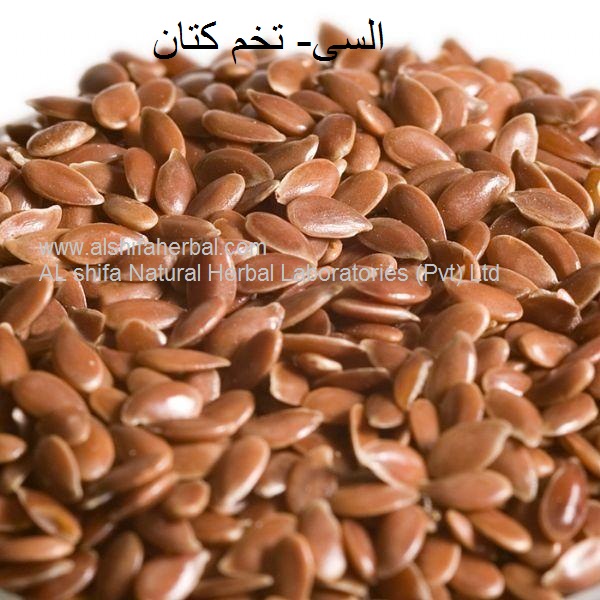
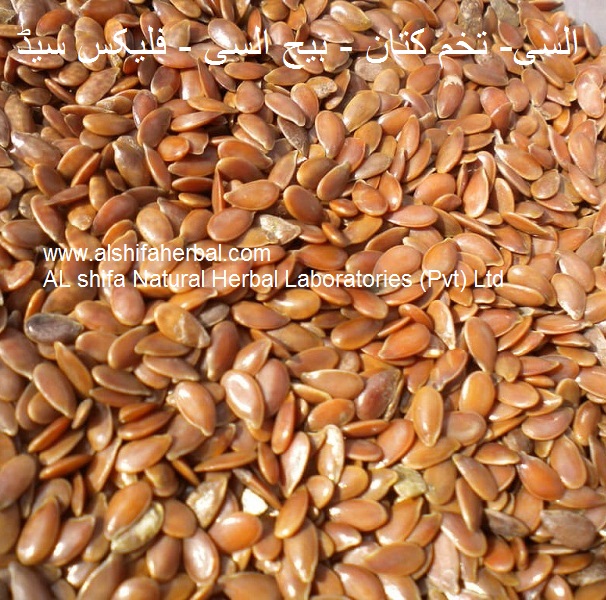
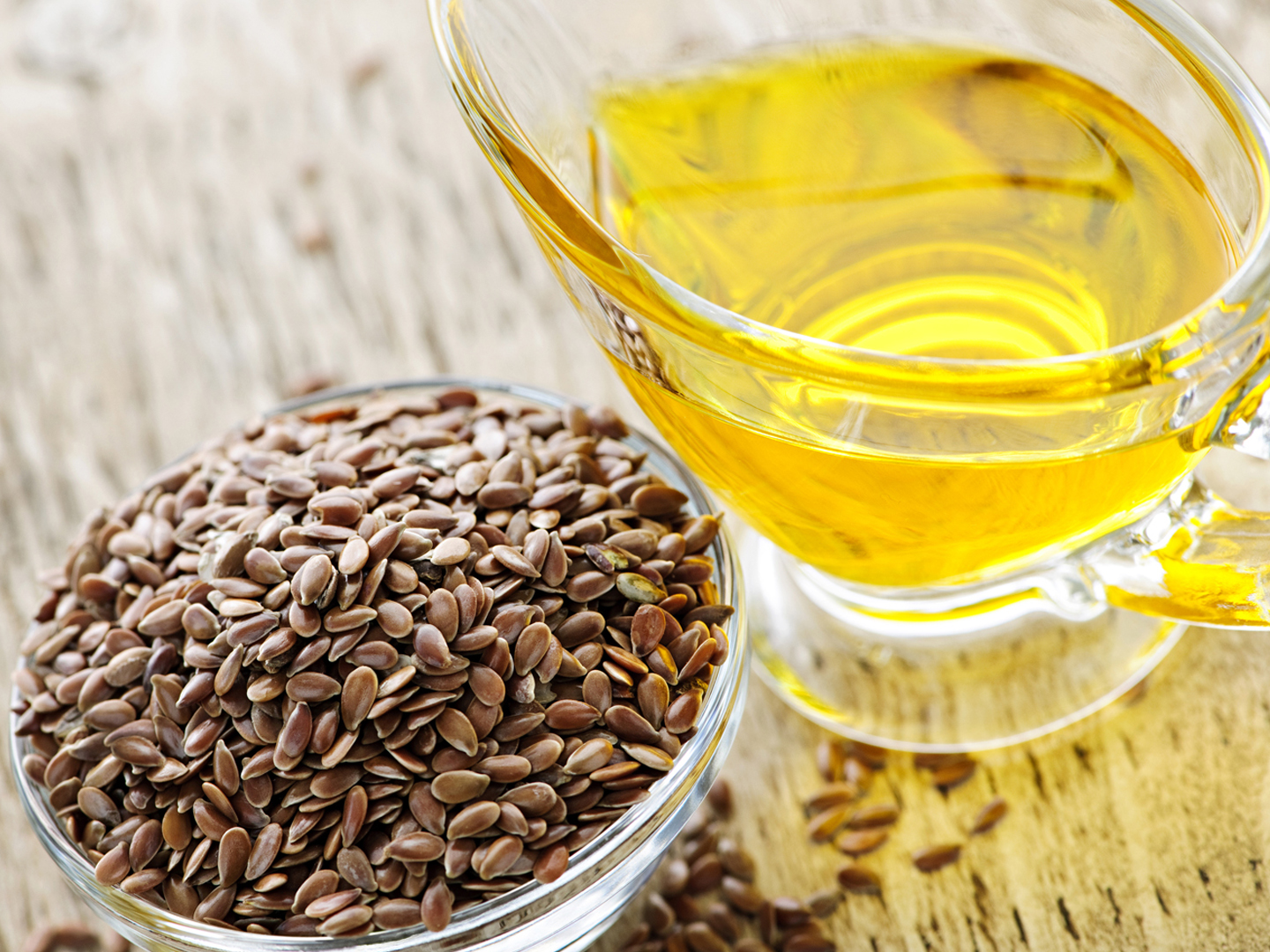
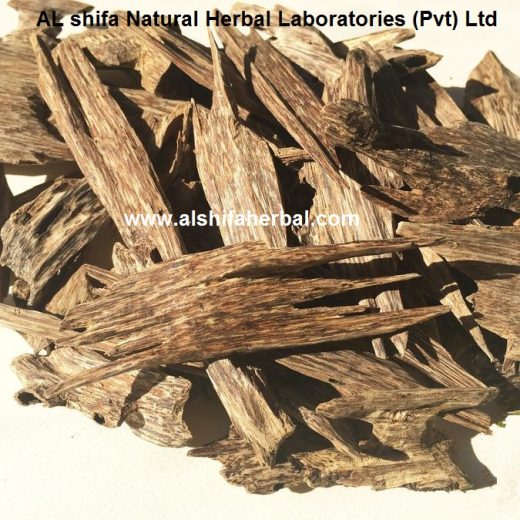
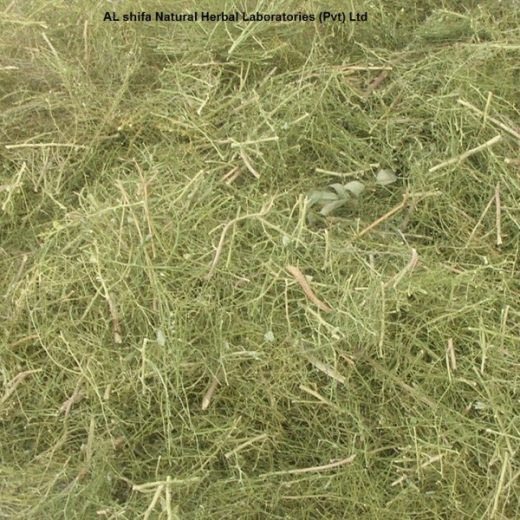
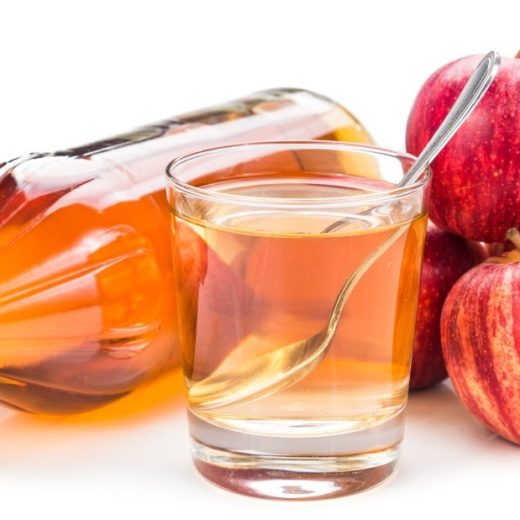



Reviews
There are no reviews yet.